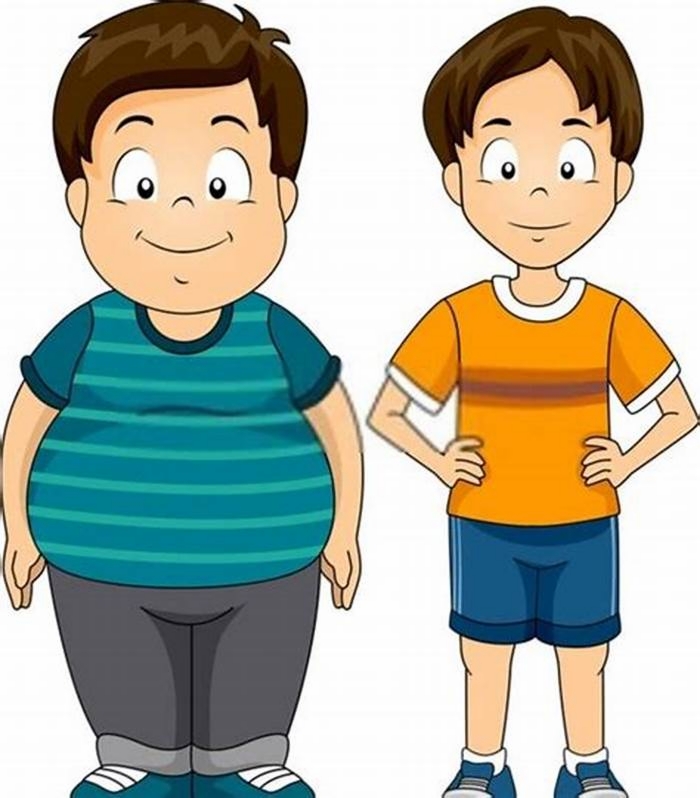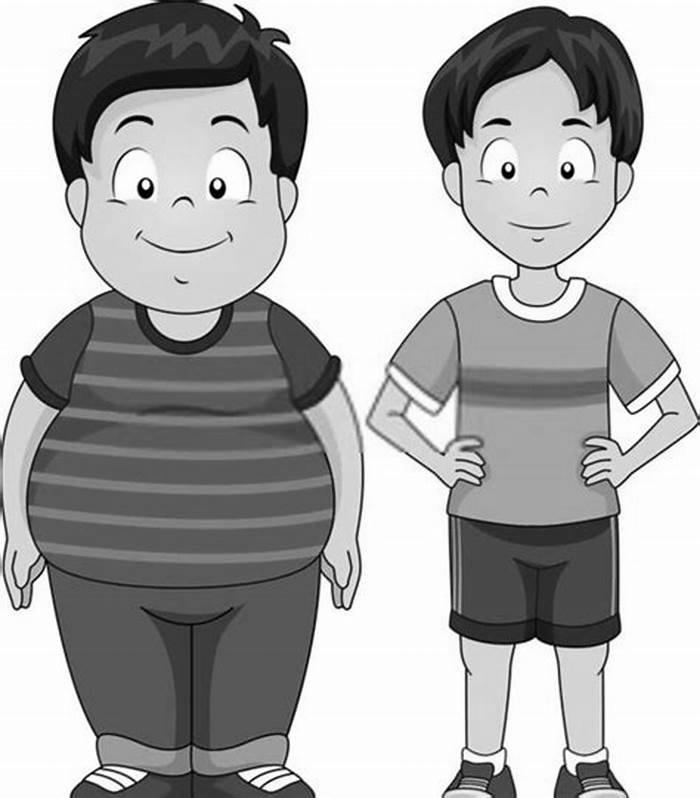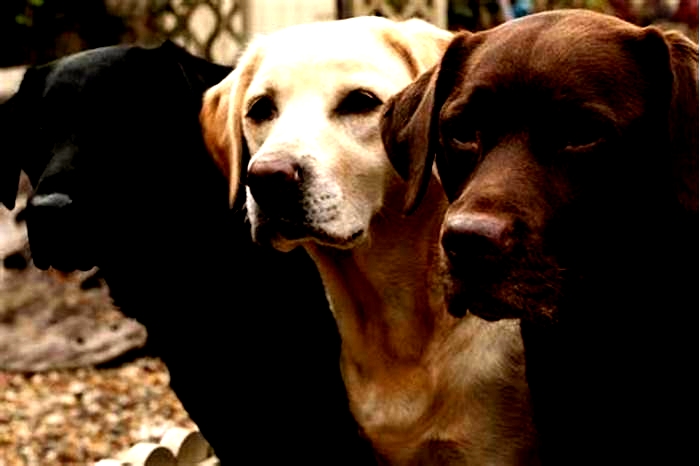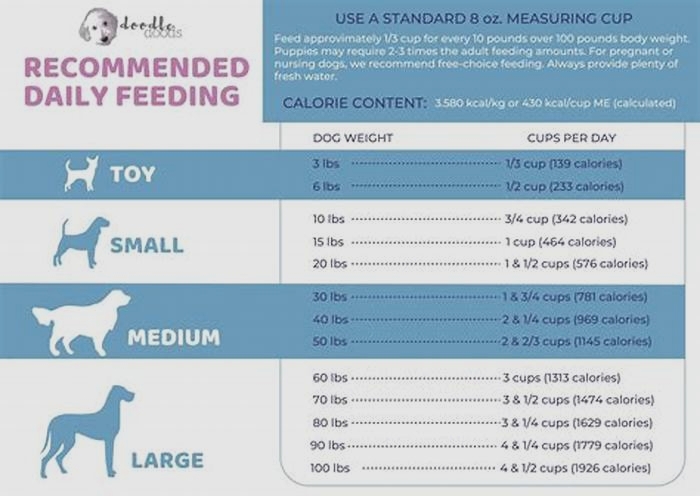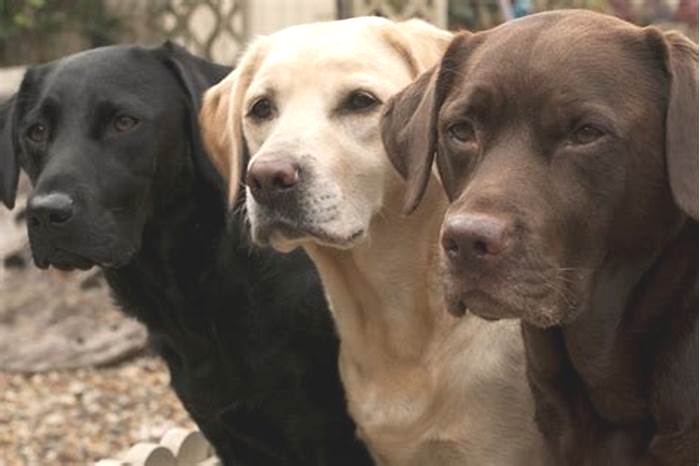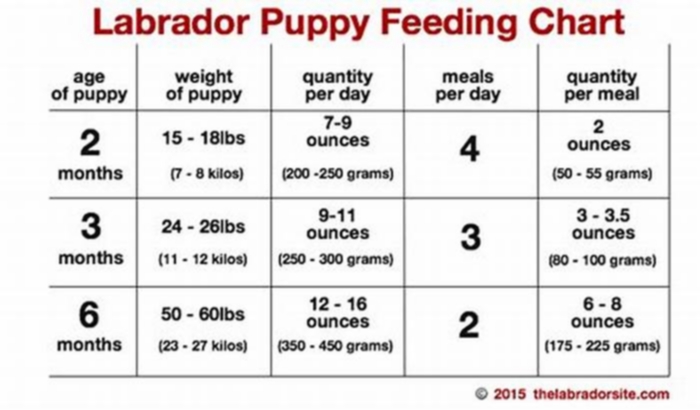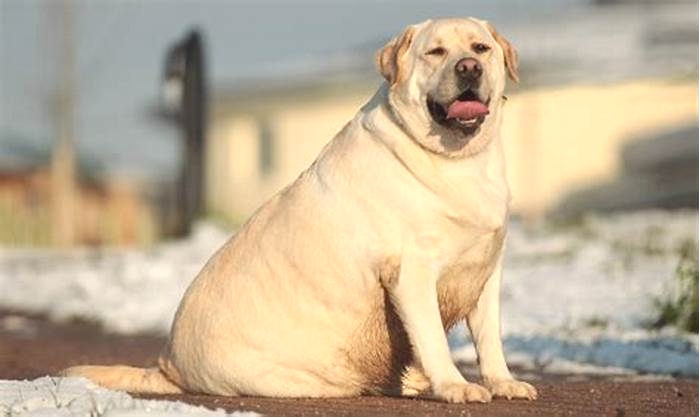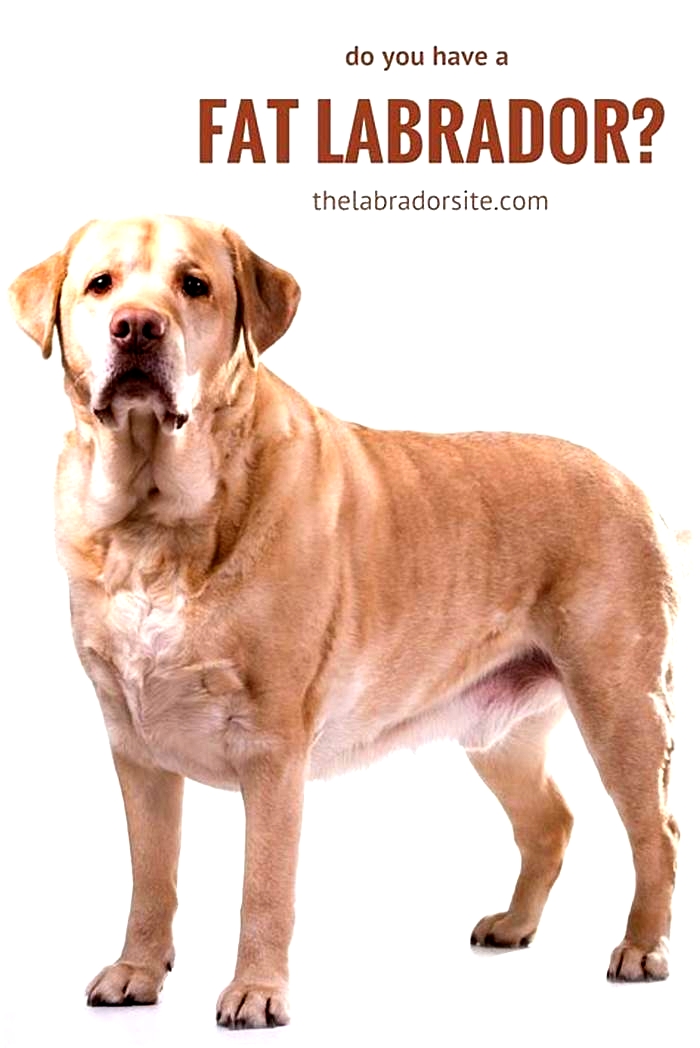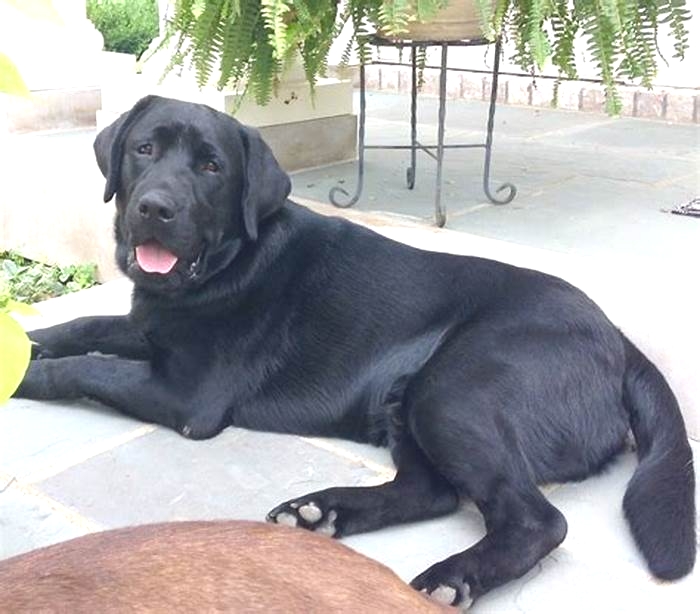How to tell if a Labrador is underweight
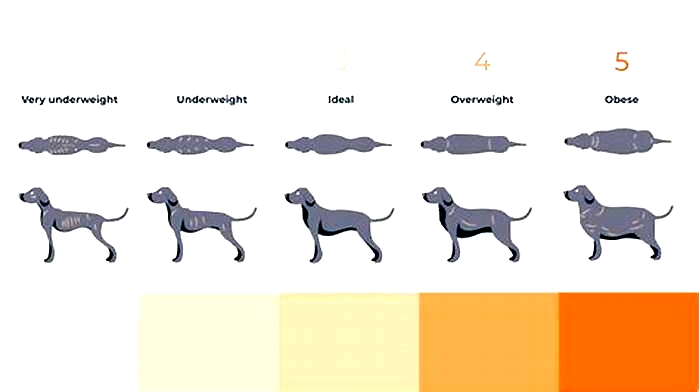
How to tell if my Labrador is underweight
You may want to learn how to tell if your Labrador is underweight for a few reasons. Maybe you think they look too thin, or perhaps youre not sure if theyre getting enough to eat. Whatever the reason, its essential to tell if your lab is underweight so you can take steps to help them gain weight if needed.
This article will provide a few of the most common signs and help you learn how to tell if your Labrador is underweight. It also has some resources on what you can do for your dog, like increasing exercise or changing their diet, to help them gain weight as needed.
What is the Average Weight of a Labrador?
Labradors are a large breed of dog and should weigh between 55-70 pounds. Its essential to know the average weight of a Labrador so you can tell if your dog is under or overweight. If your lab is significantly below the average weight, they may be underweight, and you should take them to the vet for a check-up.
According to official American Kennel Club standards, female Labs should weigh between 55 and 70 pounds, and male Labs should weigh 65 and 80 pounds.
Labrador Retriever Growth & Weight Chart
How to Check if my Labrador is Underweight
There are a few reasons dog owners need to learn to tell if their dog is underweight. Maybe the dog looks too thin, or the owner isnt sure if the dog is getting enough to eat. No matter the reason, its crucial for owners to tell if their dog is underweight so they can take steps to help them gain weight if needed.
Check for the Ribs
An easy way to tell if your lab is underweight is to check for their ribs. You shouldnt be able to see them easily. If you run down your hands down their ribs, you should be able to feel the ribs, but there should be a layer of fat over them.
If your dogs ribs are easily felt and may be seen, with no palpable fat covering them, he or she is underweight.
The opposite, your dog is overweight, is when you cannot feel your labs ribs at all
If you can very clearly see your dogs ribs, they are likely to be underweight, and you should take them to the vet for a check-up.
Is it normal to feel your dogs spine?
Yes, it is normal to feel your dogs spine. You should be able to feel the individual vertebrae in their back.
Check their overall Condition.
Another way to tell if your dog is underweight is by checking its overall condition. Underweight dogs may have coat problems, lethargy, and poor appetite. Their skin may also be loose and have little muscle mass.
If your dog is exhibiting any of these signs, they may be underweight, and you should take them to the vet for a check-up.
What to Do if your Labrador is underweight
If you have determined that your Labrador is underweight, you can do a few things to help them gain weight. First of all, always consult with your vet if you suspect your dog has a health problem. Many things could cause your dog to be underweight, and the vet will be able to rule out any potential health problems.
Feed them a high-quality diet
If your Labrador is underweight due to not getting enough to eat, you can try increasing their food intake. You should also make sure they are eating a high-quality diet. A diet high in protein and fat will help your dog gain weight.
Monitor their Weight
Its essential to keep an eye on your Labradors weight and make sure they are gaining weight at a healthy rate. You dont want them to gain too much weight, as that can be as harmful as being underweight.
Consult with your Veterinarian
If your Labrador has trouble gaining weight or suspects your dog is underweight, there may be an underlying health problem. Consult with your veterinarian to find out what could be causing your dog to be underweight and to get help developing a weight-gain plan.
Conclusion
Labradors are a large breed of dog and should weigh between 55-70 pounds. If your lab is below this weight, they may be underweight, and you should take them to the vet for a check-up. You can do many things if your Labrador is underweight, including feeding them a high-quality diet. Always consult with your veterinarian if you have any questions or concerns about your dogs weight.
FAQ
Q: How much should I feed my Labrador if they are underweight?
A: You should consult with your veterinarian to determine how much food to give your Labrador if they are underweight. Diet high in protein and fat will help them gain weight.
Q: Is it normal for my Labrador to feel their spine?
A: Yes, it is normal for your Labrador to feel their spine. You should be able to feel the individual vertebrae in their back.
Q: What are some signs that my dog may be underweight?
A: Some signs that your dog may be underweight include coat problems, being lethargic, and having a poor appetite. They may also have little muscle mass, and their skin looks dull.
Q: What can I do to help my Labrador gain weight?
A: There are a few things you can do to help your Labrador gain weight. You can try increasing their food intake, feeding them a high-quality diet, and monitoring their weight. Always consult with your veterinarian if you have any questions or concerns about your dogs weight.
Q: What is the ideal weight for a Labrador Retriever?
A: The ideal weight for a Labrador Retriever is between 55-70 pounds. If your lab is below this weight, they may be underweight, and you should take them to the vet for a check-up.
Q: My Labrador is gaining weight too quickly; what should I do?
A: You should consult with your veterinarian if you are concerned that your Labrador is gaining weight too quickly. There may be an underlying health problem causing them to gain weight at an unhealthy rate.
Q: How can I tell if my dog is overweight?
A: If your dog has a thick layer of fat over its ribs, it may be considered overweight. You should also feel their ribs and see a waist when looking at them from the side. If they dont have these features, they may be overweight. Consult with your vet!
Q: What is a healthy weight for a Labrador Retriever?
A: A healthy weight for a Labrador Retriever is between 55-70 pounds. If your dog is below this weight, they may be underweight, and you should take them to the vet for a check-up.
How To Tell If Your Labrador Is Overweight and what to do about it
Worried that your Labrador is overweight? Here are the signs that he might need to drop a few pounds, and some easy ways for you to help him lose weight. Todays guest post is by Kate OBrien from the Slimdoggy website
Labradors are known for their appetites. As a result of those healthy appetites and their ability to charm humans intofeeding them, they also are known for being a little chunky or in reality, overweight.
Labs are sporting dogs and are meant to run, swim, hunt and retrieve all day long. If your Labrador is overweight, you might worry that you are limiting his ability to do these things. In order to do that they must be healthy, strong and fit, not fat. Maybe you dont hunt with your Lab; many if not most Labs are family pets, but that doesnt mean they should be couch potatoes with an extra layer or two of fat.
A growing problem
Overweight dogs are a growing problem, pun intended. In the UK it is estimated that over one-third of all dogs are overweight1 and in the US, that figure rises to an astounding 54%.2 Labs are particularly susceptible to obesity and in the US, over 60% are overweight.
Why should we worry? What difference does it make if Buddy has a few extra pounds? Well, if you love Buddy and want him to live a long life, it makes a difference.
Weight and longevity
In the first-ever lifelong canine diet restriction study, a group of Labrador Retrievers was followed for 14 years, from birth until death.
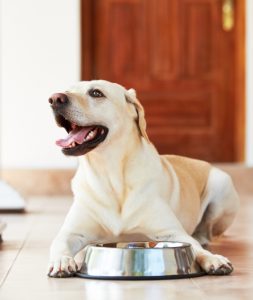 They found that a dogs median life span can be extended by 15%, nearly two years for the Labs in the study, by restricting their diet to maintain ideal body condition.3
They found that a dogs median life span can be extended by 15%, nearly two years for the Labs in the study, by restricting their diet to maintain ideal body condition.3
By keeping your Lab lean and fit you could extend their life for TWO YEARS. Thats a lot of extra time to spend with your best friend.
A lean dog also has fewer health and joint problems. Labs have a natural propensity for hip and elbow issues but keeping them fit helps keep arthritis at bay. Other serious diseases linked to being overweight include cardiovascular disease, kidney disease, and some forms of cancer.
Is my dog too fat?
Convinced you want to keep your dog fit, but dont know how to tell if they are at the proper weight? You are not alone. In the same survey from PDSA, they report that only 17% of owners look at body shape and weight before deciding how much to feed their pet, and 85% of vets say owners have no idea of healthy body shape for their pet.4
We wanted to offer a few suggestions to help you assess the body condition of your Lab.
- The first thing is to have an honest look at them. There are numerous body conformation charts for dogs you can use as a guide. We provide links to several different at the end of this article. Whichever chart you prefer, they all depict a waistline when looking at your dog from above and a slight tuck up behind the ribs. Take that guide and go look at your dog.Many folks argue that a Lab isnt supposed to have a tuck or a waist, but that standard is for show Labs and lets be honest, some of those show dogs are overweight. The reality for most of you is that your dog isnt a show dog, so having a tuck and being leaner than the show dogs you see on TV is better for their health and longevity.
- The second evaluation you can perform is whether you feel their ribs when you run your hands lightly over the sides of your dog. Note I said lightly, you shouldnt have to press in; you should easily feel them. Actually seeing the ribs of your Lab might mean your dog is too thin, so be careful of that as well.
- The scale is the third tool to use in your assessment. Weigh your dog and ask your Vet about their weight. Many vets are reluctant to bring up the subject of your pet being overweight, but if you express your concern, they will most likely give you an honest assessment. Be open to what they say.
What should he weigh?
The average Lab will weigh somewhere between 60-85 lbs or between 27-30 kgs. Use this range as a guide but be aware that some Labs with smaller or larger bone structures can be outside of the range and still be perfectly fit and at their optimal weight. Once you have an idea of whether your Lab is overweight or not, what do you do if they are?
Feeding for health
First and foremost, you have to educate yourself about what you are feeding your dog. Reading the dog food label and following what it says doesnt work. Those labels dont take into account the current condition of your dog, their age or their exercise level, all of which are important factors in how much your dog should eat each day. And they clearly dont take into account those extra treats you give your dog!
Most people dont properly measure their dogs food or even know how many calories are in the food they give them each day.
What about exercise?
Do you have any idea how many calories your dog burns each day? How can you figure out how many calories they need to eat if you dont know how many they burn? Too much work you say, just throw a scoop or two (or three) of food in the bowl and be done with it? Thats how you end up with an overweight and unhealthy Lab.
Theres an app for that!
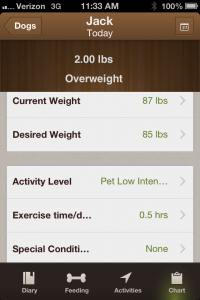 Figuring this out really isnt as hard as it sounds because, of course theres an iPhone APP for that.
Figuring this out really isnt as hard as it sounds because, of course theres an iPhone APP for that.
The SlimDoggy App is a simple App with a Daily Diary that allows you to look up and track all of this information for your dog. Like a Runkeeper and Weightwatchers for dogs, the App provides average daily calorie expenditures for a dog as well as calories burned through various types of exercise. It also has a database of over 2,500 dog foods and treats.
The Diary feature allows you to create a diary for your dog and calculate exactly how much they should be eating based on their daily exercise. The food database helps you pick the healthiest diet and the proper amount of food to feed them each day.
Dont have an iPhone? No problem, visit the SlimDoggy website and use the Calorie Widget. Soon we will have a full version of the App available on the website too! There are no excuses now.
Lets have healthy labs!
We all love our Labs and we want them to be in our lives for as long as possible and we want them as healthy as possible. Dogs dont have opposable thumbs, they cant feed themselves, and it is our responsibility to feed them a healthy nutritious diet of the proper proportions so that they are lean, fit and healthy. And then instead of giving them a treat, take them for a walk that is the best way to show your Lab you love them.
Kate OBrien and her husband, Steve, live in Camarillo, CA, with their dogs SlimDoggy Jack and Maggie May, senior Lab rescues. They are animal advocates and are active in the dog rescue and foster community. They write about their adventures with their dogs and about pet obesity, health, and fitness on theSlim Doggy website,Facebook, and Twitter.
Kate has had dogs in her life since she was a child, including the collies her grandfather used to breed and show. Allergies interfered, but then in adulthood Kate was able to bring dogs back into her life. Shes had numerous Labs, a couple of litters of puppies and many Lab fosters. Shes been able to share her love of exercise and fitness with her dogs and they inspire her to help other learn about better health, nutrition & fitness for their dogs.
FURTHER RESOURCES:
FOOTNOTES
1 PDSA Animal Wellbeing Report The State of Our Pet Nation, 2013
2 Association for Prevention of Pet Obesity Annual Survey Report 2012
3 Effects of diet restriction on life span and age-related changes in dogs, Kealey, Richard et.al., JAVMA Vol 220, No. 990, May 1, 2012
4 PDSA Animal Wellbeing Report The State of Our Pet Nation, 2013
More information on Labradors
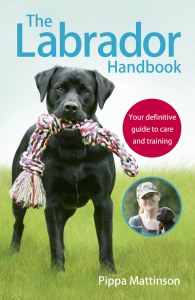 (paid link)You can find out more about how to keep your Labrador as fit and healthy as possible in the Health section of our website.
(paid link)You can find out more about how to keep your Labrador as fit and healthy as possible in the Health section of our website.
 (paid link)
(paid link)If youd like all of The Labrador Sites best information together in one place, then get your copy of The Labrador Handbook today.
The Labrador Handbook looks at all aspects owning a Labrador, through daily care, to health and training at each stage of their life.
The Labrador Handbook is available(paid link) worldwide.
The Labrador Site Founder

Pippa Mattinson is the best selling author of The Happy Puppy Handbook, the Labrador Handbook, Choosing The Perfect Puppy, and Total Recall.
She is also the founder of the Gundog Trust and the Dogsnet Online Training Program
Pippa's online training courses were launched in 2019 and you can find the latest course dates on the Dogsnet website

